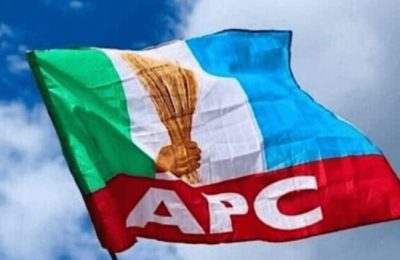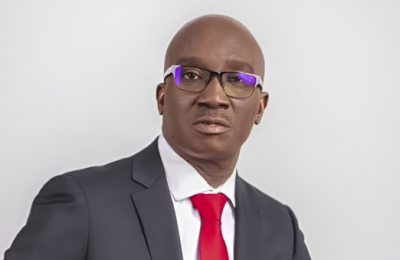The year 2025 presents a unique opportunity for governments at all levels to redefine the dynamics of the labour sector amidst a complex interplay of policy challenges, industrial relations, and economic realities. With critical actors and organisations at the forefront, the sector stands at a crossroads that could lead to job opportunities, industrial harmony, and economic growth—or sustained unrest. CHRISTIAN APPOLOS explores the personalities, agencies, unions, and critical issues expected to dominate the labour space in 2025 in this piece.
THE Ministry of Labour and Employment, led by Alhaji Muhammadu Maigari Dingyadi and Hon. Nkeiruka Onyejeocha, will be central to almost every programme, activity, and issue in Nigeria’s labour sector in 2025. As custodians of labour policies and social dialogue, their capability to proactively discharge their duties productively, and engage with stakeholders will be critical in achieving deliverables, resolving lingering disputes, and averting crises in 2025. The Ministry, it has been said, must reinvent itself as a pivotal and A-list institution among other ministries.
In the same vein, the National Directorate of Employment (NDE), under Mr. Silas Ali Agara, renewed its commitment to its job creation mandate towards the end of 2024 with the Renewed Hope Employment Initiative, which engaged 93,731 unemployed Nigerians in digital and vocational skills. The agency is expected to design more job creation schemes aligned with President Bola Tinubu’s Renewed Hope Agenda in 2025.
The National Productivity Centre (NPC), headed by Dr. Baffa Babba Dan Agundi, another important agency under the labour ministry, upped its game towards the end of 2024, collaborating with organisations like the AIG-Imoukhuede Foundation to boost productivity, particularly in agriculture and other vital sectors. There is high hope that NPC’s initiatives will play a pivotal role in driving economic growth and workforce efficiency in the new year.
Job creation and productivity initiatives rank high in the Ministry of Labour and Employment’s 2025 agenda. The Ministry, NDE, and NPC have ambitious plans for job creation. Initiatives like the Labour and Employment Empowerment Programme (LEEP), various NDE schemes, and NPC’s productivity collaborations aim to address unemployment and enhance economic output. These efforts will test the government’s ability to deliver on the Renewed Hope Agenda.
Known to be the most critical stakeholders and voices of workers across the country, expectations are also high for the Nigeria Labour Congress (NLC) and the Trade Union Congress of Nigeria (TUC). Workers and Nigerians are eager to see the new tactics and ideas the leadership of the labour movement will employ in their engagements, negotiations, and agitations in 2025. Under the leadership of Comrade Joe Ajaero (NLC) and Comrade Festus Osifo (TUC), the two labour centres are known to advocate for better worker welfare and pro-citizen policies. It is believed that their 2025 focus will centre around ensuring the implementation of the 2024 National Minimum Wage Act, addressing fuel price issues, and the 2024 Tax Bill. What they will do differently remains the key lookout in 2025.
University-based unions, such as the Academic Staff Union of Universities (ASUU), Non-Academic Staff Union of Educational and Associated Institutions (NASU), Senior Staff Association of Nigerian Universities (SSANU), Academic Staff Union of Polytechnics (ASUP), and the National Association of Academic Technologists (NAAT), remain significant players. Their agitations over withheld salaries, earned allowances, funding, and policies that drag down education standards could either escalate into industrial crises or pave the way for better agreements.
Similarly, health sector unions like the Medical and Health Workers Union of Nigeria (MHWUN) and Allied Healthcare Professionals Association (AHPA), under the umbrella body of Joint Health Sector Unions (JOHESU), along with the National Association of Nigerian Nurses and Midwives (NANNM) and the Nigerian Medical Association (NMA), may drive healthcare reforms or strikes depending on the government’s responsiveness.
In general, critical issues such as implementing the 2024 National Minimum Wage Act will lead to early engagement between governments and organised labour. While the new law has raised workers’ expectations, the consequential adjustment template remains a contentious issue. States’ ability to comply with the law without financial strain could lead to widespread agitation, particularly from the NLC and TUC.
The labour movement has consistently called for a reduction in the exchange rate to curb inflation and stabilize the cost of goods and services. Fuel prices remain a flashpoint, with unions warning that further increases could trigger nationwide protests, another dominant issue.
Similarly, unresolved agreements with health sector and university-based unions, particularly regarding earned allowances, withheld salaries, and salary structures, pose a significant risk to industrial harmony. The government’s approach to fulfilling these agreements will determine the stability of the education sector.
Another issue that may be a tipping point for industrial crises is government interference in union internal affairs. Historically, this has been a source of friction. Respecting trade union autonomy while maintaining constructive engagement will be vital to fostering industrial harmony.
An increase in electricity tariffs under the Multi-Year Tariff Order (MYTO) is another potential flashpoint. MYTO, issued by the Nigerian Electricity Regulatory Commission (NERC), sets out a 15-year tariff path for the electricity industry starting from 2023, with minor reviews each year and major reviews every five years. MYTO also includes monthly tariff adjustments based on macroeconomic conditions.
Overall, projections by labour leaders suggest that 2025 could be a strike-free year if the Ministry of Labour and Employment adopts a proactive approach. Key recommendations include prioritising social dialogue, effective policy communication, and honouring existing agreements with unions to demonstrate goodwill and accountability. If these measures are taken seriously, Nigeria could witness significant progress in labour relations, fostering economic stability and growth.
However, several challenges could derail progress in 2025. Notable among these are economic constraints. The high cost of living, driven by inflation and exchange rate fluctuations, could intensify labour demands. Varying fiscal capacities among states could hinder the uniform implementation of the minimum wage. Unresolved grievances in the education and health sectors may escalate into industrial action. These issues are red flags.
The success of 2025 will depend on the government’s ability to navigate these challenges while balancing the interests of workers, unions, and the broader economy.
To this end, Nigeria’s labour sector in 2025 will be shaped by the interplay of proactive governance, union activism, and economic realities. Ministries, agencies, and unions must collaborate to address pressing issues, from minimum wage implementation to job creation and productivity enhancement. With the right strategies, 2025 could mark a turning point for Nigeria’s workforce, setting the stage for sustainable industrial harmony and economic growth.
READ ALSO: Harmony in labour sector key to national development —Labour Minister, Dingyadi







